Although her first renown on television was in tough-talking professional roles – the fierce and cynical news editor in the first two series of Drop the Dead Donkey (1990-91); no-nonsense doctors in Peak Practice (1999) and Dalziel and Pascoe (2005); and as Superintendent Susan Blake in the first series of Merseybeat (2001-02) – there seemed to be no limit to the talent of Haydn Gwynne, who has died of cancer aged 66.
The impression that she could be drop-dead funny, as she was in Drop the Dead Donkey, was consolidated by more recent royal family forays in Channel 4’s The Windsors (2016) in which, not to be outdone by Harry Enfield’s crude impersonation of Prince Charles, she played Camilla as Cruella de Vil – or “as if she were Joan Collins in a soap called Balmoral”, she said. More sedately, she applied a twinkling composure to Lady Susan Hussey, woman of the royal bedchamber, in the fifth series (2022) of The Crown on Netflix.
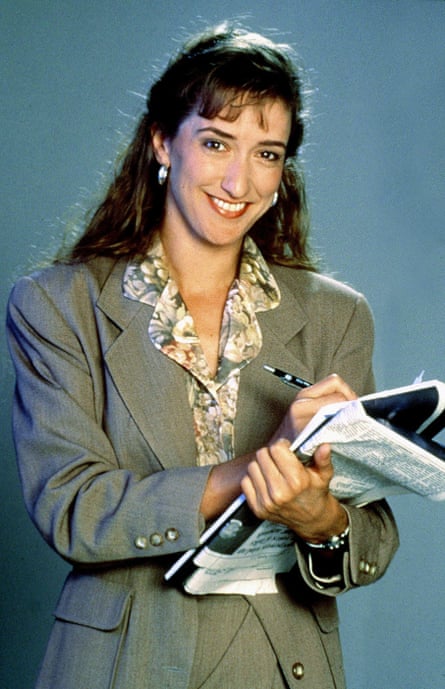
Gwynne had been a notable musical theatre presence on stage since 1988, when she played Billie Burke, the long-suffering second wife of the Broadway producer Flo Ziegfeld and lit up an otherwise execrable extravaganza, Ziegfeld, at the Palladium, with torch songs delivered with stylish flair.
So it was no great surprise that she stormed the stage as the dancing teacher Mrs Wilkinson in Stephen Daldry’s outstanding 2005 musical transformation of his own movie, Billy Elliot, written by Lee Hall with a new score by Elton John. She layered her performance with a teacher’s melancholy and a surrogate mother’s relief as Billy came truly alive on stage, and she went with the show to Broadway where she won a couple of major awards and a Tony nomination.
Gwynne was a late developer as an actor, although she had dabbled in amateur dramatics while at school in Sussex. The daughter of Rosamond (nee Dobson) and Guy Hayden-Gwynne, she was born into a large family in Hurstpierpoint, where her father ran a printing business. She had been on the verge of a career as a tennis player, having represented Sussex at junior county level, but from Burgess Hill girls’ school went instead to Nottingham University, then took off for five years on a university lectureship in Rome, teaching English as a foreign language.
Realising at last that she was in denial of her germane acting bug, Gwynne returned to Britain. Her first job, in December 1984, was at Alan Ayckbourn’s Scarborough theatre-in-the-round in an ensemble revival of Sandy Wilson’s eccentric 1971 musical His Monkey Wife, based on a John Collier story of a man marrying a chimpanzee.
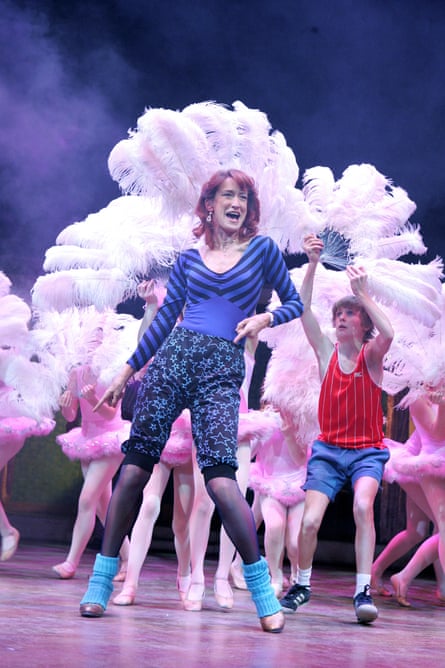
This led to engagements around the reps, playing a season at the Royal Exchange, Manchester, and two great leading roles: Millamant in William Congreve’s The Way of the World at the Theatre Royal, Northampton, and Hedda Gabler, in the Christopher Hampton translation of the Henrik Ibsen play, at the Bolton Octagon in 1990.
She was now noted as a new stage star, and the director Michael Blakemore cast her as a broken-hearted, wise-cracking secretary in his brilliant production of City of Angels (1993) at the Prince of Wales. She joined the Royal Shakespeare Company for the 1994-95 season, inspirationally paired as Helena with Emma Fielding as Hermia (she tall and willowy, Fielding pert and pugnacious) in Adrian Noble’s wittily conceived A Midsummer Night’s Dream, and as a winsome, graceful, shiningly intelligent Olivia to Fielding’s impetuous Viola in Ian Judge’s fresh look at Twelfth Night.
In the same season, she made a beautiful, innovative double of Peer Gynt’s mother and lover in John Barton’s small-scale production led by Alex Jennings, but did not return to the RSC until a misguided Christmas musical version of The Merry Wives of Windsor in 2006, though she and Alexandra Gilbreath were another dream pairing as Mistress Page and Mistress Ford.
All good new playwrights must be buoyed by good actors, lest they sink, and Shelagh Stephenson’s debut play The Memory of Water (1996) was a case in point at the Hampstead theatre. Gwynne played one of three daughters – a doctor, in the throes of an adulterous affair – visited by the ghost of their recently interred mother. An all-round great cast in Terry Johnson’s production hilariously conveyed the atmosphere of family feuding as skeletons came tumbling out of a heavily populated closet. The play is continuously revived.
Gwynne’s first starring role on TV was in 1989 as the feminist, lecherous lecturer Robyn Penrose in David Lodge’s adaptation of his own signature novel Nice Work. She remained in demand over the subsequent 30 years, with telling cameos as, for instance, Caesar’s wife Calpurnia in the international sandals-and-toga epic co-production of Rome (2005-07).
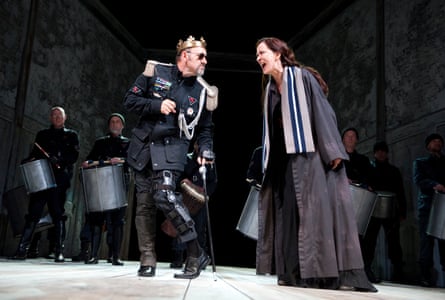
Back in the theatre, she was outstanding as a formidable southern wiseacre stricken with multiple sclerosis, in Gina Gionfriddo’s Becky Shaw at the Almeida in 2011; as Queen Elizabeth to Kevin Spacey’s Richard III at the Old Vic in the same year, directed by Sam Mendes, and catching perfectly, said Michael Billington, “the moral revulsion of being enlisted by Richard in seeking the hand of her daughter, even though he has murdered most of her relatives”.
Her work remained varied and always surprising: a brilliant, oddly elasticated Margaret Thatcher in Peter Morgan’s The Audience (2013) opposite Helen Mirren’s monarch, incensed about an alleged “political” leak from the palace; a fantastic Lady Wishfort – silly, selfish and ageing “like an old peel’d wall” – as she returned to The Way of the World at the Donmar Warehouse in 2018; and another great “turn” as a fraudulent lady from Colchester in Lucy Kirkwood’s The Welkin at the National in early 2020.
She raised the roof at the Stephen Sondheim gala Old Friends at the Gielgud in May 2022 with her knockout version of the great Elaine Stritch number The Ladies Who Lunch, from Company, but was too ill to rejoin the cast for this year’s September run at the same theatre.
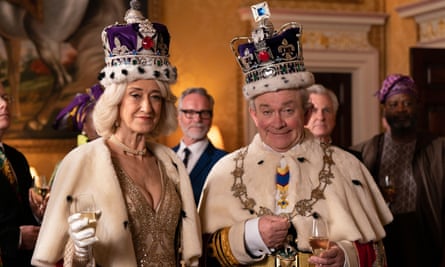
Her last West End appearance was in The Great British Bake Off Musical in March at the Noël Coward where, as Pam Lee, she approximated to an idea of Prue Leith – with cartwheels. As the critic Dominic Cavendish said: “Sometimes [in the theatre] you need Eugene O’Neill. Sometimes you just need a cake trolley.”
Gwynne was recently separated from her partner, Jason Phipps, a Jungian psychoanalyst, though they remained friends, and she is survived by him, their two sons, Orlando and Harrison, and her sister, Pippa, and brother, Nick.
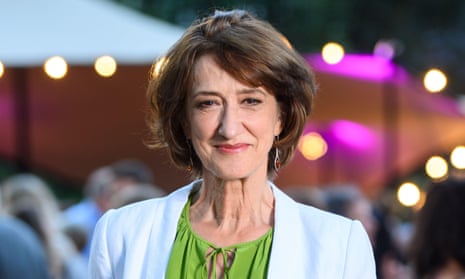
Comments (…)
Sign in or create your Guardian account to join the discussion